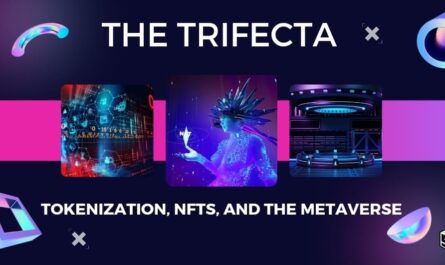
The term “securities” is a commonly used term to describe a tradable financial asset. But did you know that SolidBlock has introduced a new term – known as tokens – to the finance world? So what are these tokens and how are they similar and different from securities? Yael Tamar, SolidBlock’s Co-CEO and Co-Founder, gives a brief explanation that will clarify it all.
Real estate tokenization is an emerging trend representing the convergence of real estate investing and blockchain technology. Tokenization helps asset or fund owners raise capital more efficiently, and gives investors unprecedented access to private real estate investments, transparency, and liquidity.
WHAT DOES IT MEAN TO “TOKENIZE” A REAL ESTATE ASSET?
Tokenization is a relatively new term used to describe a cryptocurrency fundraise in which investors exchange fiat or crypto currency for “tokens.”
In a nutshell, tokenization is one way to securitize real assets.
To securitize an asset means to divide it into shares that you can sell to investors. In the same way, to “tokenize” an asset is to divide it into shares, or “tokens,” that represent a predefined share of the underlying asset. They are therefore often called “security tokens.”
These tokens are secured through the immutability of blockchain technology, and they’re tradeable via crypto exchanges or Alternative Trading Systems (ATS).
A security represents a share in a financial asset, for example, a company, which can be traded on the stock markets. Yet now, SolidBlock’s ground-braking technology has introduced the term “token” to represent a share in a tangible, real-world asset.
As Yael explains, the biggest difference between securitization and tokenization is the fact that the latter is a combination of both securitization and digitization. Digitization is the process where a token is placed on the blockchain and can now be traded on it, allowing to track who owns the security.
The global real estate market is valued at US$228 trillion. Before the tokenization of real estate, only accredited and institutional investors had access to the most exciting projects. But now asset owners and developers can market their projects globally to retail investors as well as institutions.
Tokenization also brings much-needed liquidity and transparency to a traditionally opaque industry. The ability to trade shares in real assets, in real-time (the same way public companies are traded in stock markets) should attract more investor attention and unlock the potential for more ambitious and unique real estate developments.
Of course, investors can already buy and sell real estate investment trusts (REITs), but these often have high minimum investments and represent a large portfolio of companies rather than a single property or new development.
The tokenization of real estate is giving investors and owners alike the freedom to raise/invest capital how they choose. Tokenization will also impact other illiquid asset classNamees, like private equity and venture capital.
Read more about the future of tokenization in this Medium article written by SolidBlock CEO Yuval Wirzberger.
Tokenization brings with it many benefits and if you want to learn how it can benefit your business too, contact us HERE to speak with one of our executives.

 by
by 

